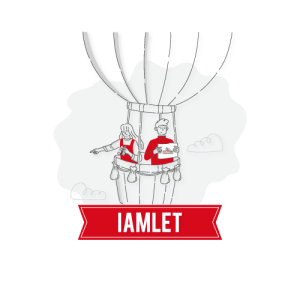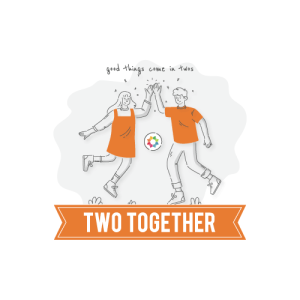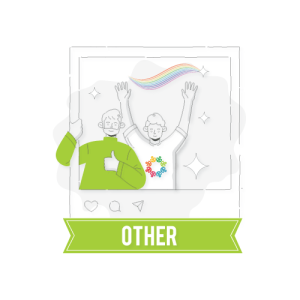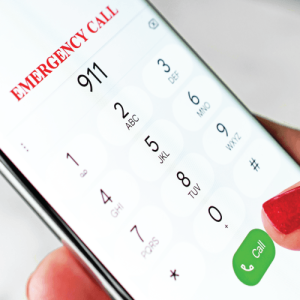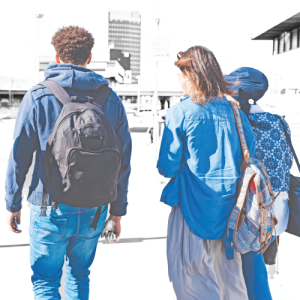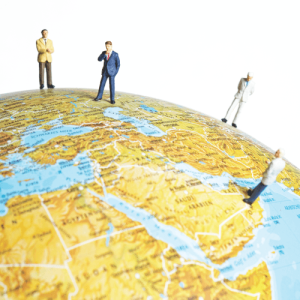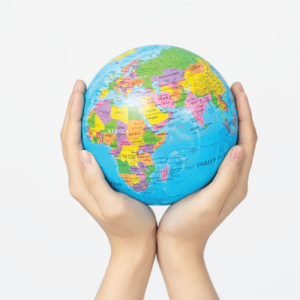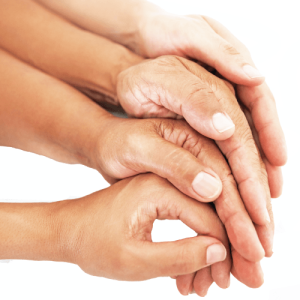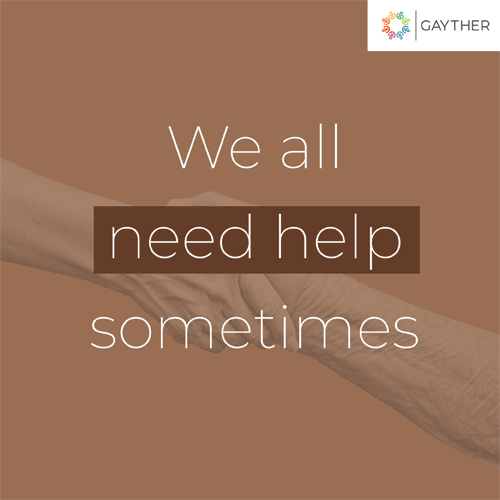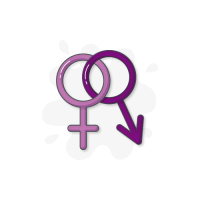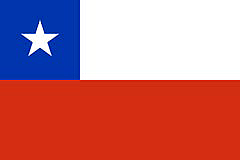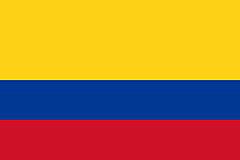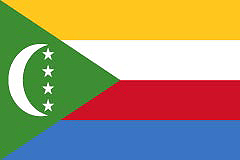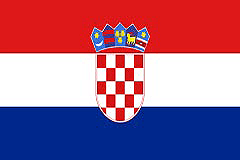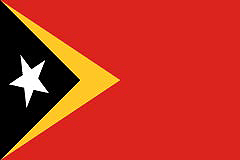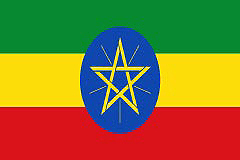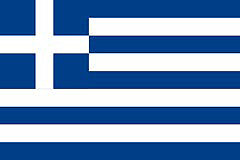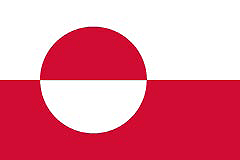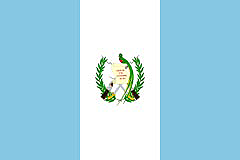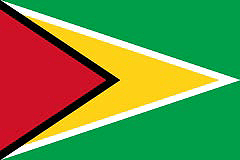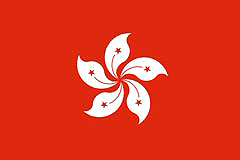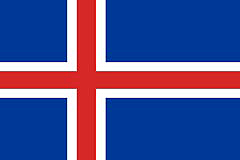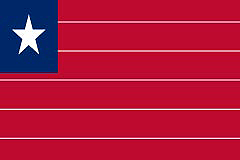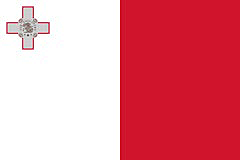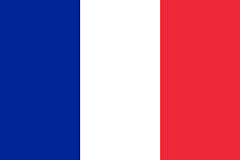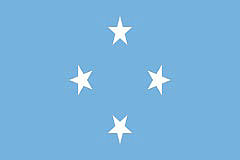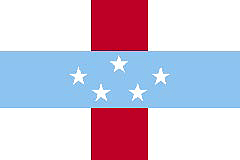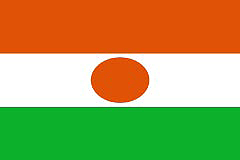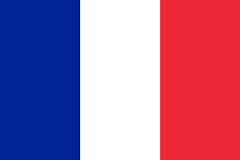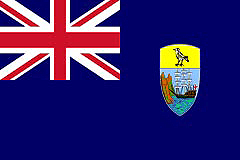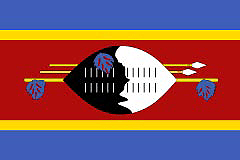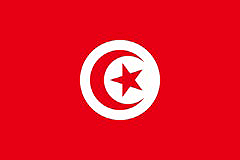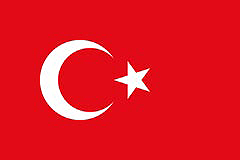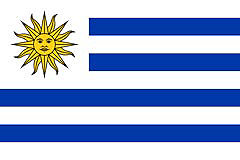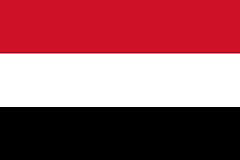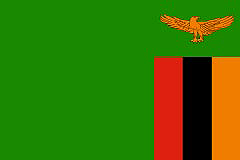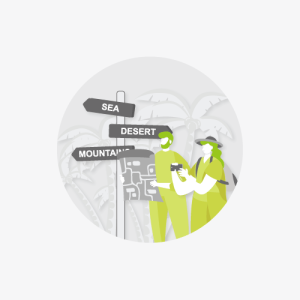
2023 Worldwide LGBTQIA+ Equality Index
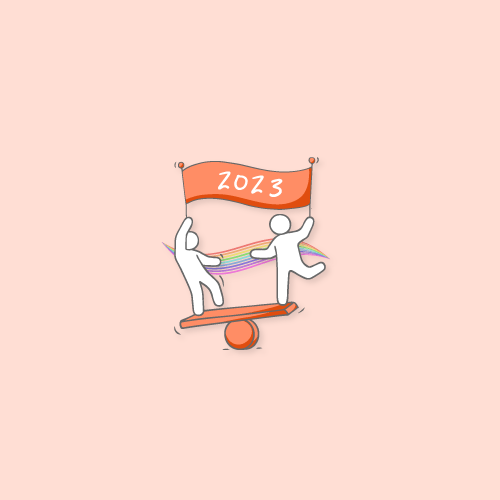
The gay, lesbian, bisexual, transgender, and all groups with non-traditional gender and sexual identities, collectively known as the LGBTQIA+ community, have been around in many forms for thousands of years. The community faced hundreds of years of persecution, targeted campaigns and gruesome convictions when prosecuted. It was not until the late 18th century that the gay movement began to gain momentum, with prominent people advocating for equality and a movement that continues today.
The LGBTQIA+ equality index focuses on the community’s global status, rights, and legal treatment. The index is compiled by reviewing the many rules and laws that directly affect and impact the community, areas such as the same-sex legal status, the right to marry, anti-discrimination laws and other key metrics
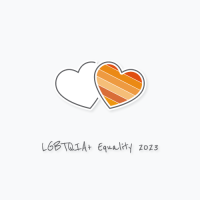









































































































































































































































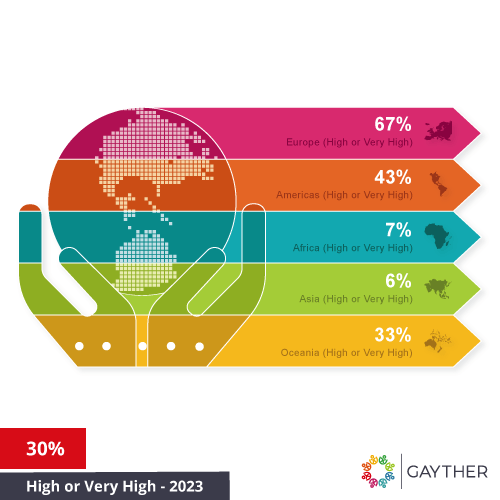
- 23.4% or an estimated 49.6 million LGBTQIA+ individuals live in countries in which it is illegal to carry out same-sex related acts
- 84 countries have extensive anti-discrimination laws in place
- 60 countries allow LGBTQIA+ couples to adopt, and 22 countries offer limited adoption rights such as step-child adoption or LGBTQIA+ individual adoption
- 98 countries have laws concerning gender identity/expression
- 16 countries have nationwide bans in place concerning Gay Conversion Therapy
- In 2023, in terms of the worldwide equality index:
- 30% of all countries are classified as high or very high
- 45.5% of all countries are classified as medium-high or medium-low
- 24.5% of all countries are classified as low or very low
- 23.4% or an estimated 49.6 million LGBTQIA+ individuals live in countries in which it is illegal to carry out same-sex related acts
- 42.1% or 98 countries have laws concerning gender identity/expression
- For members of the LGBTQIA+ community living in countries in which same-sex related activities are illegal if prosecuted:
- 18 countries still criminalise same-sex activities; however, they do not enforce prosecutions
- 8 countries issue penalties of up to 2 years imprisonment
- 24 countries issue penalties of 2 years to life imprisonment
- 5 countries have vigilante groups administering torture, beatings and executions
- 10 countries issue death penalties
- In terms of anti-discrimination laws:
- 84 countries have extensive laws in place
- 38 countries have some laws in place
- 111 countries have no laws in place
- In terms of other key factors affecting the LGBTQIA+ community:
- 60 countries allow LGBTQIA+ couples to adopt, and 22 countries offer limited adoption rights such as step-child adoption or LGBTQIA+ individual adoption
- 119 countries allow LGBTQIA+ individuals to serve in the military
- 16 countries have nationwide bans in place concerning Gay Conversion Therapy
- 2 countries have legalised Gay Conversion Therapy, making it state-approved
- Antigua and Barbuda, Barbados, Saint Kitts and Nevis, and Singapore decriminalised homosexuality, which was all signed into law
- Same-sex marriages in Andorra, Cuba, Curaçao (Netherland Antilles), and Slovenia became legal, and Latvia legalised civil unions for same-sex couples. The United States implemented the Respect for Marriage Act, which protects same-sex and interracial marriages. The Supreme Court of Nepal ordered the government to recognise same-sex marriage, paving the way for the government to implement same-sex marriage legislation in the future
- Colombia’s Constitutional Court ruled in favour of allowing non-binary people to have their gender legally recognised, and in the United States, passports are now issued with a non-binary “X” gender option
- Canada and New Zealand implemented bans on conversion therapy, and the health ministry of Israel announced a ban on conversion therapy with the national medical commission within India, declaring anyone performing conversion therapies professional misconduct
- Austria, Greece, France, Ireland and Lituania have removed or reduced bans on deferral periods for gay men who donate blood
- Kuwait’s Constitutional Court has repealed a law that has been historically used to criminalise transgender people by forbidding the imitation of the opposite sex
- Unfortunately, Russia introduced a bill making it a crime to spread so-called gay propaganda to anyone, regardless of age and in Uganda, the parliament passed the Anti-Homosexuality bill in 2023, criminalising same-sex sexual activity with a life sentence or the death penalty, including criminalising identification of as LGBTQ+ individual and the promotion of homosexuality
 Click on a specific country within the map to find out the equality score
Click on a specific country within the map to find out the equality score
The LGBTQIA+ equality index focuses on the community’s global status, rights, and legal treatment. The index is compiled by reviewing the many rules and laws that directly affect and impact the community, including same-sex legal status, the right to marry, anti-discrimination laws and other key metrics. To understand all of the areas and how they contribute to the overall score, click here to view the how it was calculated page
Through the work of advocates and pioneers, many members of the LGTBQIA+ community now have the rights and freedoms to live their authentic lives or selves without fear of persecution; however, there are still inequalities and injustices occurring all over the world. Many brave individuals and groups work within those countries to change the laws and opinions, so hopefully, everyone will have the freedom and protection under the law one day.
Simply put, the higher a country scores, the lower the equality status of that country on the index. The lower the status, the worse they treat members of the LGBTQIA+ community. IMPORTANT: If you feel your life is in danger or fear persecution, visit the non-profit organisations and support groups’ pages. There are many specialist charities and groups available worldwide that can help. A link to support groups can be found in the footer of every page on the Gayther service
TAKING PRIDE IN YOU



Equality means equal rights and treatment, which means not treating someone differently because of their gender or sexuality. Equality represents a belief that everyone within any given country should have the same rights and privileges enjoyed and given to the majority of people living in that country. In the example of sexuality, the majority would be individuals who identify as heterosexual. Equality would mean for the LGBTQIA+ community that people should be able to live without fear of persecution, love whomever they love, without condemnation and have the same access to education, healthcare, marry or form civil partnerships, and create loving family units
DISCOVER WHICH COUNTRIES LEGALLY RECOGNISE GENDER IDENTITIES...
Gender and body dysmorphia affects many people each year. Many will feel trapped in the wrong body and look to transform their outer appearance to reflect their inner self. For those going through their transition, it is often a challenge and lengthy process. Discover how each country around the world legally acknowledges and treats gender identities
Please select a country from the drop-down list to discover common phrases relating to equality
AFGHANISTAN
ALBANIA
ALGERIA
AMERICAN SAMOA
ANDORRA
ANGOLA
ANGUILLA
ANTIGUA AND BARBUDA
ARGENTINA
ARMENIA
AUSTRALIA
AUSTRIA
AZERBAIJAN
THE BAHAMAS
BAHRAIN
BANGLADESH
BARBADOS
BELARUS
BELGIUM
BELIZE
BENIN
BERMUDA
BHUTAN
BOLIVIA
BOSNIA AND HERZEGOVINA
BOTSWANA
BRAZIL
BRITISH VIRGIN ISLANDS
BRUNEI DARUSSALAM
BULGARIA
BURKINA FASO
BURUNDI
CAMBODIA
CAMEROON
CANADA
CAPE VERDE (CABO VERDE)
CARIBBEAN NETHERLANDS
CAYMAN ISLANDS
CENTRAL AFRICAN REPUBLIC
CHAD
CHANNEL ISLANDS
CHILE
PEOPLE’S REPUBLIC OF CHINA
COLOMBIA
COMOROS
DEMOCRATIC REPUBLIC OF THE CONGO
REPUBLIC OF THE CONGO
COOK ISLANDS
COSTA RICA
CROATIA
CUBA
REPUBLIC OF CYPRUS
CZECH REPUBLIC (CZECHIA)
DENMARK
DJIBOUTI
DOMINICA
DOMINICAN REPUBLIC
EAST TIMOR (TIMOR-LESTE)
ECUADOR
EGYPT
EL SALVADOR
EQUATORIAL GUINEA
ERITREA
ESTONIA
ETHIOPIA
FALKLAND ISLANDS (LAS MALVINAS)
FIJI
FINLAND
FRANCE
FRENCH GUIANA
FRENCH POLYNESIA
GABON
THE GAMBIA
GEORGIA
GERMANY
GHANA
GIBRALTAR
GREECE
GREENLAND
GRENADA
GUADELOUPE
GUAM
GUATEMALA
GUINEA
GUINEA-BISSAU
GUYANA
HAITI
HONDURAS
HONG KONG
HUNGARY
ICELAND
INDIA
INDONESIA
ISLAMIC REPUBLIC OF IRAN
IRAQ
IRELAND
ISLE OF MAN
ISRAEL
ITALY
IVORY COAST (COTE D’IVOIRE)
JAMAICA
JAPAN
JORDAN
KAZAKHSTAN
KENYA
KIRIBATI
DEMOCRATIC PEOPLE’S REPUBLIC OF KOREA (NORTH)
REPUBLIC OF KOREA (SOUTH)
REPUBLIC OF KOSOVO
KUWAIT
KYRGYZSTAN
LAOS
LATVIA
LEBANON
LESOTHO
LIBERIA
LIBYA
LIECHTENSTEIN
LITHUANIA
LUXEMBOURG
MACAU
MADAGASCAR
MALAWI
MALAYSIA
MALDIVES
MALI
MALTA
MARSHALL ISLANDS
MARTINIQUE
MAURITANIA
MAURITIUS
MAYOTTE
MEXICO
FEDERATED STATES OF MICRONESIA
MOLDOVA
MONACO
MONGOLIA
MONTENEGRO
MOROCCO
MOZAMBIQUE
MYANMAR
NAMIBIA
NAURU
NEPAL
NETHERLANDS
NETHERLANDS ANTILLES
NEW CALEDONIA
NEW ZEALAND
NICARAGUA
NIGER
NIGERIA
NIUE
NORTH MACEDONIA
NORTHERN MARIANA ISLANDS
NORWAY
OMAN
PAKISTAN
PALAU
STATE OF PALESTINE
PANAMA
PAPUA NEW GUINEA
PARAGUAY
PERU
PHILIPPINES
PITCAIRN ISLANDS
POLAND
PORTUGAL
PUERTO RICO
QATAR
REUNION
ROMANIA
RUSSIA
RWANDA
SAINT BARTHELEMY (BARTS)
SAINT HELENA
SAINT KITTS AND NEVIS
SAINT LUCIA
SAINT MARTIN (DUTCH)
SAINT MARTIN (FRENCH)
SAINT PIERRE AND MIQUELON
SAINT VINCENT AND THE GRENADINES
SAMOA
SAN MARINO
SAO TOME AND PRINCIPE
SAUDI ARABIA
SENEGAL
SERBIA
SEYCHELLES
SIERRA LEONE
SINGAPORE
SLOVAKIA
SLOVENIA
SOLOMON ISLANDS
SOMALIA
SOUTH AFRICA
SOUTH SUDAN
SPAIN
SRI LANKA
SUDAN
SURINAME
SWAZILAND (ESWATINI)
SWEDEN
SWITZERLAND
SYRIA
TAIWAN
TAJIKISTAN
TANZANIA
THAILAND
TOGO
TOKELAU
TONGA
TRINIDAD AND TOBAGO
TUNISIA
TURKEY (TURKIYE)
TURKMENISTAN
TURKS AND CAICOS ISLANDS
TUVALU
UGANDA
UKRAINE
UNITED ARAB EMIRATES (UAE)
UNITED KINGDOM (UK)
UNITED STATES OF AMERICA (USA)
URUGUAY
US VIRGIN ISLANDS
UZBEKISTAN
VANUATU
VATICAN CITY (HOLY SEE)
VENEZUELA
VIETNAM
WALLIS AND FUTUNA
YEMEN
ZAMBIA
ZIMBABWE
LGBTQIA+ COUNTRY & REGION GUIDES
The total number of countries is grouped by how well they score within the Worldwide LGBTQIA+ Equality Index. The index is based on 233 countries across the globe.
The Gayther equality index focuses on the LGBTQIA+ community’s global status, rights and legal treatment. The index is compiled by reviewing and categorising the many rules and laws that directly affect and impact the community. Categories and areas include same-sex legal status, the right to marry, anti-discrimination laws and other key metrics. Click here to view the How it was calculated page to understand all of the areas and how they contribute to the overall score
How can the LGBTQIA+ Equality Status help visitors and travellers?
The LGBTQIA equality index + indicates how well a country treats its citizens and the local community. Though many issues individuals face within a country, such as the right to marry or adopt, will not affect visitors or travellers, it helps to gauge attitudes. Countries, where LGBTQIA+ identities are more widely accepted within society tend to have more progressive laws. Laws, especially in democratically elected governments, are typically driven and implemented based on consensus and high approval rates amongst most citizens. Where countries score lower on the equality scale, the LGBTQIA+ community will likely face hostility, including visitors and travellers to that country, unless they are discrete. Ultimately the index is a great indicator; however, it is not the only one that can affect someone’s travel experience. Research must be carried out when planning to travel to a particular area or region to ensure that there are no problems, such as extreme weather, outbreaks of diseases or violence

When reviewing data, it is crucial to understand what it represents, whether it reflects the world and the experience of all those affected. Changes within any given country or region are not restricted to a specific month of the year or even are automatically triggered. Change, especially concerning equality, gender recognition, same-sex marriages and the status of gay conversion therapy, often takes work. Typically by many large groups of dedicated and focused individuals advocating and fighting for justice for positive change within their local communities.
The indices have been created to help you understand the world around you; however, engaging with your global community is essential. It is vital, especially if you are familiar with your desired destination. By reaching out and communicating with other members of the LGBTQIA+ community, you can establish critical details. It only takes a small amount of effort in locating people from or those who have already visited your particular destination for advice. Engaging on social media and Gayther’s networking platform, Gayther Affinity, can help you connect with the global LGBTQIA+ community.
EXCEPTIONAL PEOPLE MAKING HISTORY
Gayther...your community resources
Three dedicated websites offer various tools, services, guides, and much more. Free tools and services tailored toward all groups within the global LGBTQIA+ community
There are thousands of events taking place, it is not always easy to know what is going on and when, Gayther can help
SMARTPHONE SHORTCUTS & BOOKMARKS
- The index has been compiled and is correct as of March 31, 2023
- The index has been compiled using a variety of different sources, including news articles, publications and websites such as Wikipedia
IMPORTANT DISCLAIMER: The LGBTQIA+ equality index has been compiled based on the rules and laws that exist at a national level, rather than for any given region, state or province. Though a country may score low on the index, it does not necessarily mean that they are not safe to travel to if personal discretion is applied. The LGBTQIA+ worldwide equality index is for illustrative purposes only and does not constitute advice. It is essential that you carry out independent research on any countries you plan to visit before going as laws and regulations change frequently. Your country’s foreign office will advise any given country’s status and whether it is safe to travel there. Though we endeavour to keep all information across the site updated, we do not provide any guarantees to the accuracy and completeness of any information displayed. This page may contain external links to third party websites; Gayther provides these links for your convenience and does not endorse, warrant or recommend any particular products or services. By clicking on any external links, you will leave Gayther and be taken to the third-party website, which you do so at your own risk and by accessing the site, you will be required to comply with the external third party’s terms and conditions of use and privacy policies




